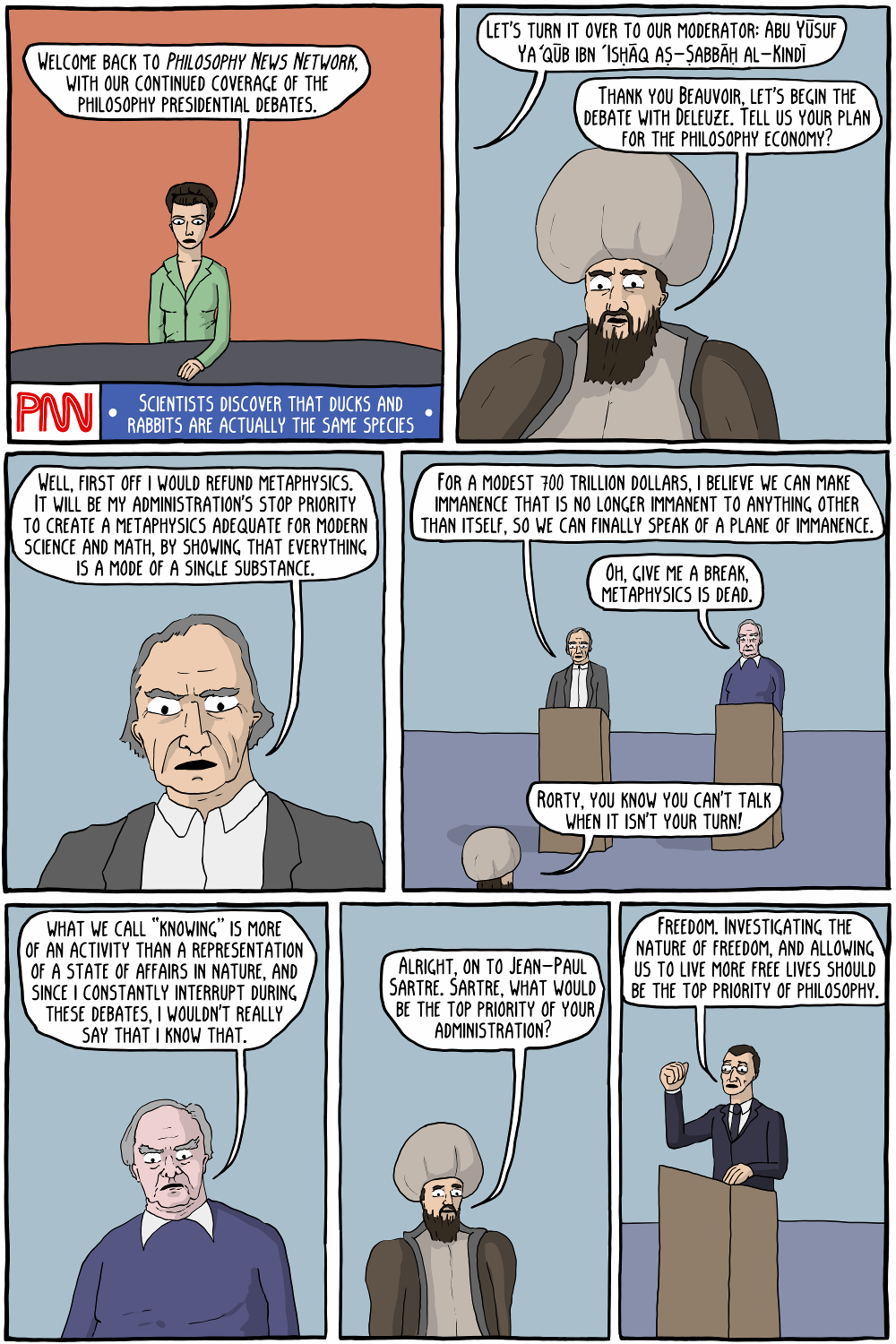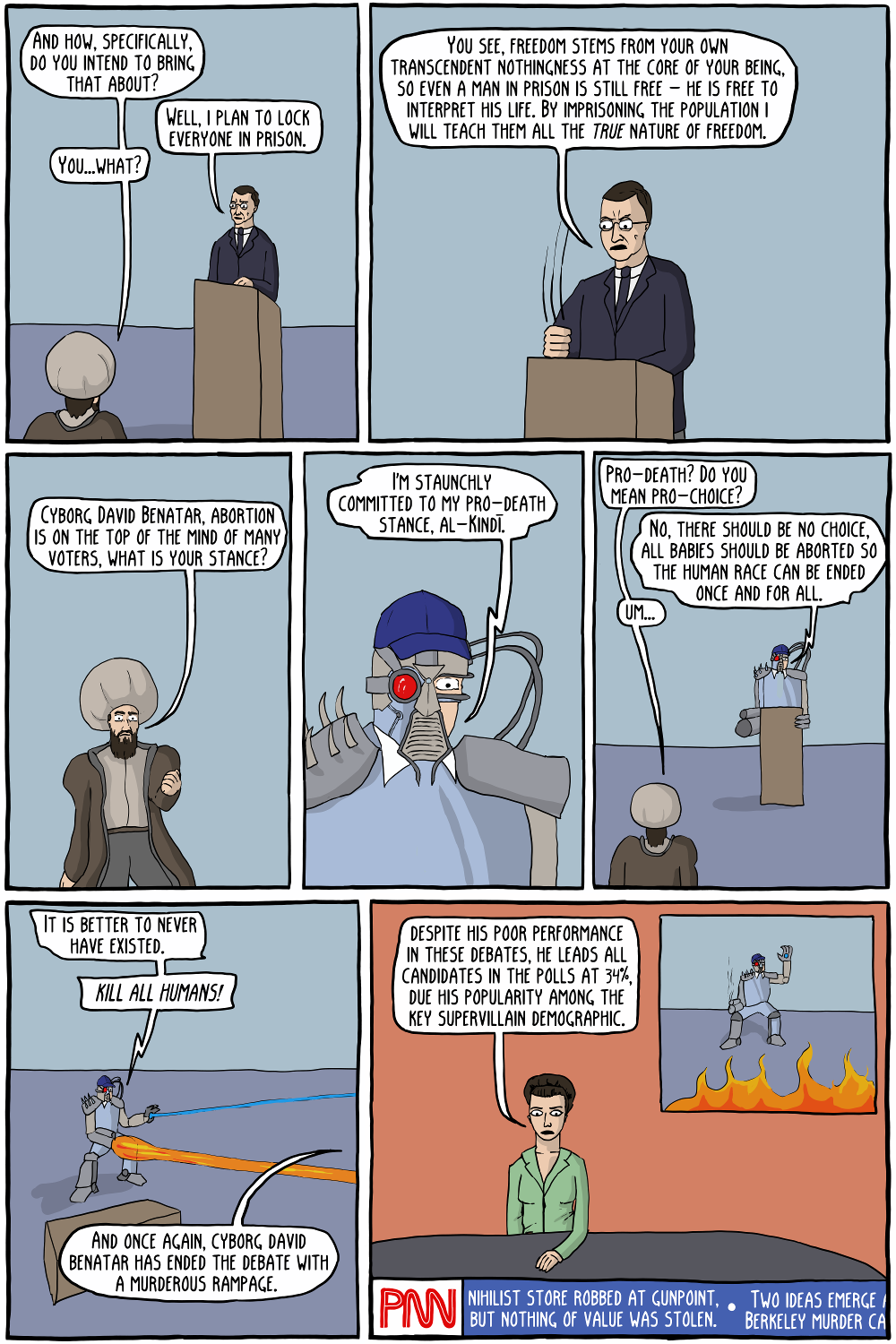

Richard Rorty is a 20th century American philosopher and pragmatist. Following Wittgenstein, Heidegger and Dewey, Rorty believed that knowledge was only constituted in how it governs human action, and not a sort of "mirror of nature", as was popularly believed in 18th and 19th century philosophy. Many philosophers in that era, such as Kant, Russell, and Hegel, tried to create all encompassing systems that could explain how we know about nature. He thought philosophy had moved on from that sort of grand metaphysical project, in a similar way to how the modernist philosophers had moved on from the problems of the medieval scholastics.
Deleuze was a 20th century French philosopher, he called himself a "pure metaphysician", despite being a philosopher in the what Rorty believed was the post-metaphysics era. He thought everything was a mode of a single substance, similar to Spinoza. He called this the Plane of Immanence, wherein all distinctions collapse.
Al-Kinda was in many ways the father of Islamic philosopher, having introduced Aristotelian philosophy into the Islamic World. Most Islamic philosophy took its heritage from Aristotle, and was commentary on Aristotle, until Avicenna. Avicenna was so influential that after him most people studied him directly, rather than Aristotle (although his philosophy is still based on Aristotle in many ways). Despite his great influence, most of Al-Kindi's direct philosophical work has been lost, as he was eclipsed in importance by others, such as Al-Farabi, Avicenna, and al-Ghazali.
I've explained Sartre's ideas on freedom many times, but he did go to the end and claim that even a man in prison, even if his legs and arms were tied, would still be free to interpret his situation. For Sartre, this wasn't so even that much of a hypothetical, as he spent time in a Nazi war camp in World War II, and said that he was never more free than during that time, and it influenced many of his ideas on freedom in his post-war writings.
David Benatar is a modern anti-natalist. He does, in fact, believe that all babies should be aborted, as it is better to have never existed at all. He doesn't, of course, believe that we should kill living humans (since they should be able to decide for themselves). David Benatar apparently doesn't allow people to take picture of him, or film him, so I had to make him into a cyborg (since I had nothing to go off of). That's convenient, of course, because then he can be extra evil.
Permanent Link to this Comic: https://existentialcomics.com/comic/96
Support the comic on Patreon!










